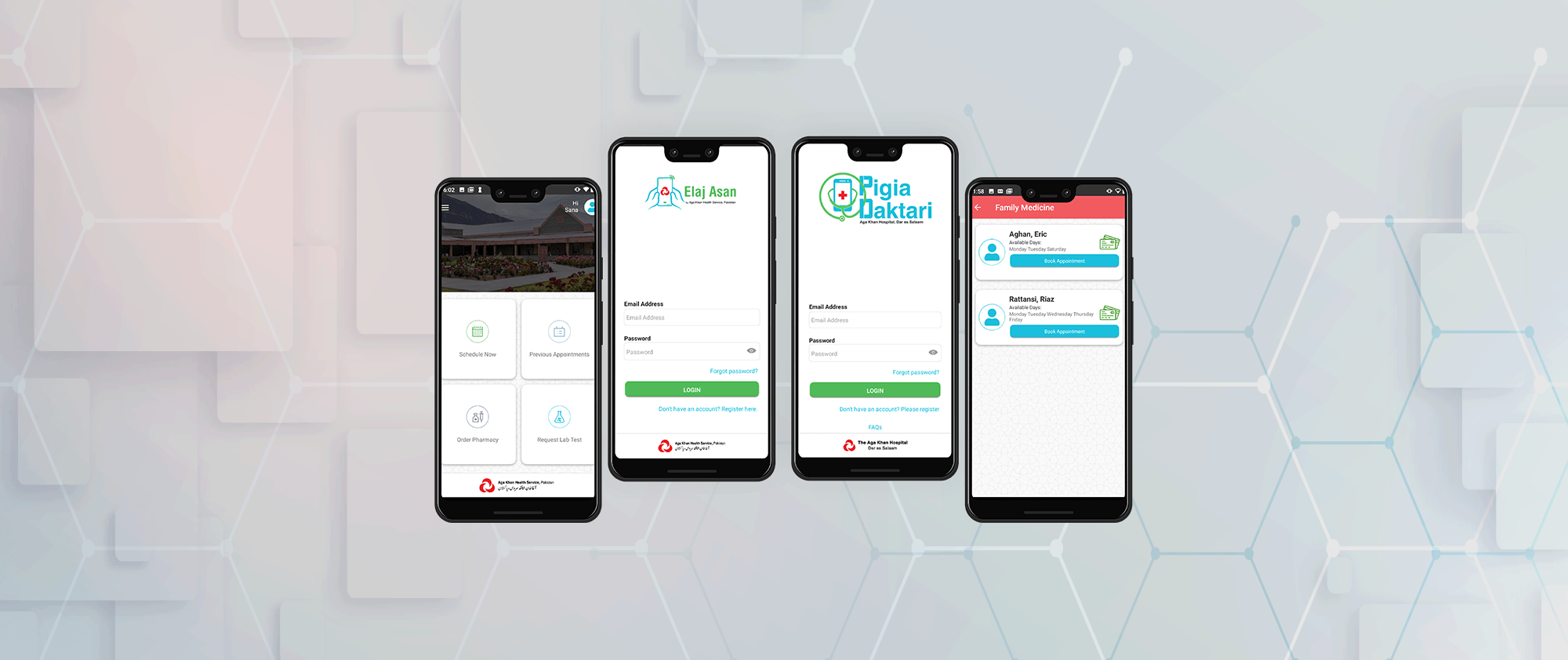

Elaj Asan in Pakistan | Pigia Daktari in Tanzania
With social distancing measures and lockdowns in place during the COVID-19 pandemic, digital solutions have become crucial in addressing the impacts of isolation, to enable continuity of economic activity and delivery of basic social services, including education and healthcare.
The use of telemedicine in mainstream healthcare service delivery was triggered during SARS epidemic in 2003 and reinforced during the MERS-CoV in 2013. Prior to that, telemedicine was primarily used to provide care to remote areas or where access to care is limited.1 During the COVID-19 pandemic, telemedicine has emerged to become the quickest and safest method of interaction between patient and clinician.2
AKDN dHRC, understanding the needs of the COVID-19 pandemic, was quick to respond and deployed an end-to-end telemedicine mobile app, VirtualDoc, in Pakistan and Tanzania. VirtualDoc, called "Elaj Asan" in Pakistan and "Pigia Daktari" in Tanzania, was customized to suit the needs and priorities of each country, and launched in collaboration with the Aga Khan Health Services in Pakistan and Tanzania.
The app is an Android-based, patient-centered platform, which provides access to specialists via teleconsultation services offered by AKHS. With video calling and online payment features, VirtualDoc allows patients to seamlessly schedule appointments, make payment, consult doctors, upload prescriptions and diagnostic reports and maintain their personal health record in the comfort of their home. The app also allows elderly patients, who may be limited to travel due to illness and those experiencing symptoms of COVID-19, to consult physicians from home.
The app generates and manages patient-specific records related to prescriptions and radiology and laboratory tests, while also ensuring privacy and transparency. In Pakistan, a full-fledged pharmacy delivery component allows users to order, pay for track and receive pharmaceutical goods at their doorstep.
The application allows teleconsultations to be conducted through either Wi-fi or cellular data services available on smart devices, instead of computer-based teleconsultations, which require internet connectivity.
Through the COVID-19 Innovation Research Project , in addition to Pakistan and Tanzania, VirtualDoc will be implemented in Kenya.
1 Ohannessian R. (2015). Telemedicine: Potential applications in epidemic situations [Télémédecine : applications potentielles en situations épidémiques]. European Research in Telemedicine / La Recherche Européenne en Télémédecine, 4(3), 95–98. https://doi.org/10.1016/j.eurtel.2015.08.002
2 Gao, Y., Liu, R., Zhou, Q., Wang, X., Huang, L., Shi, Q.,., & et al. (2020). Application of telemedicine during the coronavirus disease epidemics: a rapid review and meta-analysis. Annals of translational medicine, 8(10), 626 https://doi.org/10.21037/atm-20-3315
© Copyright 2021 All Rights Reserved